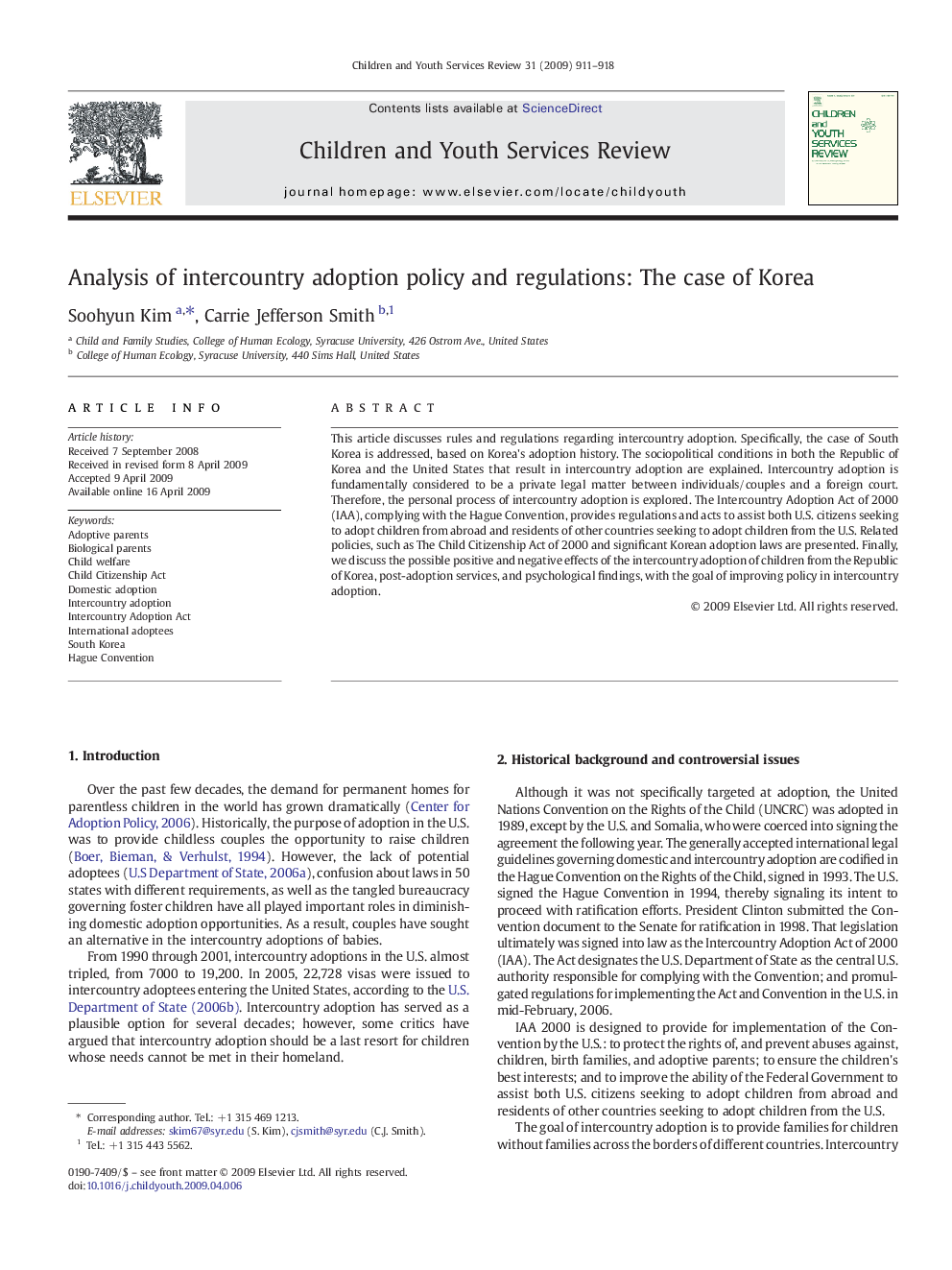| Article ID | Journal | Published Year | Pages | File Type |
|---|---|---|---|---|
| 346676 | Children and Youth Services Review | 2009 | 8 Pages |
This article discusses rules and regulations regarding intercountry adoption. Specifically, the case of South Korea is addressed, based on Korea's adoption history. The sociopolitical conditions in both the Republic of Korea and the United States that result in intercountry adoption are explained. Intercountry adoption is fundamentally considered to be a private legal matter between individuals/couples and a foreign court. Therefore, the personal process of intercountry adoption is explored. The Intercountry Adoption Act of 2000 (IAA), complying with the Hague Convention, provides regulations and acts to assist both U.S. citizens seeking to adopt children from abroad and residents of other countries seeking to adopt children from the U.S. Related policies, such as The Child Citizenship Act of 2000 and significant Korean adoption laws are presented. Finally, we discuss the possible positive and negative effects of the intercountry adoption of children from the Republic of Korea, post-adoption services, and psychological findings, with the goal of improving policy in intercountry adoption.
